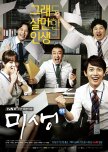
This review may contain spoilers
So far, I have seen three Korean dramas that have blown me away. "Descendants of the Sun," "Stranger," and now "Misaeng." "Misaeng" is about four interns, hoping to secure jobs in the Korean trading company, One International. Those unfamiliar with how Koreans do business may easily find themselves intrigued and sometimes disgusted with the Korean working environment.Still mostly a male dominated work environment, you will see that it is still a difficult and challenging place for women to break into. Being verbally abused, and even occasionally sexually harassed, despite the company guidelines forbidding it, women take on the challenge of having to "put up with it" while trying to climb the corporate ladder.
A group of interns are working at One International with the hope of securing a permanent position through a contract offer. Of course, the four interns that the series focuses on, all come from different backgrounds and have differing personality traits. What makes them interesting is that they are all complex characters, causing the viewer to find certain things endearing about each one as well as things you may be turned off by. Sounds like real life, right? And that is just one of the charms that makes this series work so well.
First, we have Geu-Rae, a highly introverted young man, who doesn't have much of an educational background. His resume is full of small, part-time jobs that cause his fellow interns to contemptuously wonder how he got the internship in the first place. Especially contemptuous is fellow intern, Baek-Gi. Unknown to most of his co-workers and even his supervisors, Geu-Rae is a champion in the classic game of bad-uk (Go). Somehow, he is able to utilize bad-uk strategies to help him solve problems. He is also able to take criticisms without taking them personally. He knows he's there due to connections, and not because of any ability that he has. Geu-Rae, therefore, knows that he has to prove himself by working even harder than any of the other interns.
Next is Young-yi, portrayed by the beautifully capable So-ra Kang as the only female intern. She is dedicated, and she already has much knowledge about the trading business. She is also able to speak several languages fluently. However, she has to take the abuse from her male colleagues, forcing her to do nothing more than retrieve coffee, get their shoes cleaned, and so forth. Somehow, she is able to do these things long enough to prove to them, that she's highly capable and only wants to serve and support her team. I cannot imagine how it must be for a Korean woman trying to succeed in such an environment where she is derided and taking constant abuse. To make matters worse, her own father tells her that he regrets that she wasn't born a boy.
Baek-Gi is the ambitious intern who is a bit prim and proper. He's a bit arrogant, and feels that certain jobs are beneath him. It takes him a while to understand why there is a learning curve in place and also to learn how to be humble and supportive. When Geu-rae, at one point, appears to be getting more recognition than him, Baek-Gi doesn't take it well as his resentment builds toward Geu-rae...until he finally learns the truth about Geu-rae's past. Baek-Gi starts off as a very unlikable character, but he quickly grows on you.
Seok Ryul is the wild, passionate, and somewhat lazy intern, who'd rather spend his time gawking at girls than working. However, his strength lies in his knowledge of the working factory man; the blue collar workers who "slave away," often in unfavorable conditions and with outdated equipment, in the company factories. He's also a bit resistant to authority, especially if he feels that he's being taken advantage of. However, he loves his fellow interns, and his friendship with all of them is important to him.
The power of this series is in the relationships between, not only the interns, but also with their co-workers. These are people who spend more time with each other than with their own families. Comradery is important to them , and they often work late hours or go out for drinks together after work.
The heart and soul of this series, rests with Mr. Sang-shik Oh (stellar performance by Sung-min Lee, who all but steals the series!), who is Geu-rae's boss of Sales Team Three. At first, Mr. Oh is reluctant and even a bit hesitant to help Geu-rae learn the job due to his lack of qualifications and experience. However, upon seeing Geu-rae's willingness to learn the job as well as his determination, Mr. Oh relents. More than that, he takes Geu-rae under his wing, and we quickly find that the two characters have a love and a respect for each other that is quite touching and heart-warming. Geu-rae, who has been alone much of his life, finds a "father-figure" in Mr. Oh.
We see our cast of characters dealing with one obstacle after another, as they struggle in the workplace; a place that is sometimes friendly, sometimes hostile, and always competitive. The stories are first-rate as well as the actors who bring these fascinating characters to light. You'll laugh, you'll cheer, and you'll occasionally even find yourself choking back tears.
You'll quickly adhere yourself to characters that you love, and despise those that you don't. In the end, I think most people would love to have a boss like Mr. Oh who demonstrates wonderful integrity, despite the back-dealings, and money-grubbing traits of many of the greedy managers around him. He looks after all of the interns, and he has no problem "tripping" those who abuse them in very funny situations.
Misaeng shouldn't be missed or overlooked. This series has it all.
Was this review helpful to you?

Alchemy of Souls Season 2: Light and Shadow
3 people found this review helpful
This review may contain spoilers
Among All Couples, You Two Are the Dearest--Light and Shadow!
Of course, I had no wish to spoil anything in the title, so I modified the quote of Master Lee as he tells Jang Uk and Cho Yeong, "Among all the married couples I have seen through my entire life, you two are the dearest." That is a sentiment that I'm sure resonates with most viewers.A light that embraces a shadow will never be lost in darkness. This may be the most profound piece of wisdom said throughout the entire series. Most people fear the darkness; fear the shadow, but only by embracing it—accepting it—can it be released and let go. Jang Uk is the light, and Naksu is the shadow, and both are equally important in maintaining that balance.
Season 2 was every bit as incredible as Season 1, and in some ways, even more so as we finally come to the culmination of this vast, deep, complex, and incredible story. While it may be sad for those who’ve traveled this amazing journey, we are grateful to have been a part of it at all.
This is an epic series that transcends just about every other series that I have ever seen. It’s beautiful, it’s deep, it’s revealing, and it’s vast in its wisdom. Like so many other Korean shows, it invites the viewer to take a hard look at the world around him or her as well as to take a look within ourselves. It’s another reason why I believe that Koreans—and a few others—represent the next stage in the evolution of entertainment. That people no longer wish to JUST be entertained, but this medium of TV and film can be used to bring about change and wisdom.
Jang Uk embodies the ice stone, making him pretty much invincible. And while others crave the ice stone for its power and immortality, Jang Uk merely sees it as a vehicle to do what is right. That is what makes him a true hero, in my book because he is truly selfless. The only real question is whether or not he can find some spark of happiness for himself. He began this journey as a somewhat lazy and selfish young man. And now, he represents all that is good and noble in man.
When we last left Naksu, her sole desire was to get her energy back. However, had it not been for the bells, one has to believe that her love for Jang Uk would have prevailed. As Mu-deok, Naksu was a bit rough around the edges. We could see her fluctuating between her desire to get her power back and get revenge to softening and dropping her guard to let love inside. As Jin Bu-Yeon—despite her loss of memory—we see a much softer Naksu who smiles a lot more and seems deeply infatuated with Jang Uk. And nothing can substitute Naksu’s finally embracing the light AND shadow of who she is.
Maidservant Kim is as lovely and handsome as ever! And seeing Park Jin’s attempts at mastering the art of cooking were hilarious! They make a cute couple.
At 30 episodes, this series easily goes down as one of the best of all-time for me. And the best fantasy series since Lord of the Rings—and in some ways—even surpasses that one. They are just about even, as far as I’m concerned. We’re given an incredible world of mages whom—despite their extraordinary power—fall to the same evils as ordinary men. The story and characters are vibrant and deep, and the special effects are state-of-the-art, but they never overshadow the characters or the story. The special effects do what they are meant to do: compliment and enhance the story.
I cannot think of a single flaw in the series. It was well-written, well-directed, and immaculately performed by the entire cast. Performances across the board were impeccable. The chemistry between Lee Jae Wook and Go Yoon Jung was fantastic, which is really saying something because the chemistry between Lee Jae Wook and Jung So Min was equally impressive. When I saw that Jung So Min wasn’t going to be in the second part of the series, I admit that I was apprehensive, but Go Yoon Jung more than impressed me.
At some point, I will definitely want to rewatch this series. I’m sure there will be details that I’ve missed or forgotten. Plus, I can watch all 30 episodes together rather than having to wait. Alchemy of Souls is a journey that has been more than a privilege to be a part of. It’s like being grateful that you were alive to see and watch Star Wars for the very first time, watch Sohyang, Michael Jackson, Bruce Lee, Michael Jordan, Kobe Bryant, etc. Those special people and moments that only seem to come around once in a lifetime. Alchemy of Souls is an unforgettable series for that reason.
Was this review helpful to you?

This review may contain spoilers
Castaway Diva is Mostly a Cast Away Series
Castaway Diva is a good story that does a lot of things right, while overlooking and dismissing a lot of things throughout the story. In many cases, a 16-episode story arc can run too long. This is a case where the series would have been better served with 16 episodes rather than 12.The premise is a good one, in which Seo Mok Ha finds herself stranded on an island for 15 years, after trying to escape her abusive father. I didn’t know that there are over 3,000 islands within the Korean Archipelago, a fact that should have been mentioned to give the viewer some idea of why Seo Mok Ha was so difficult to locate.
Some suspension of disbelief is required for this aspect of the series. Unlike in the movie “Castaway,” which was well researched by Robert Zemeckis, Seo Mok Ha has suffered no psychological effects from being isolated. She isn’t suffering from malnutrition, and her teeth are perfectly white. Also, that far north, Korean winters can bring cold weather, even on that island, and yet, she somehow survives this without any ill effects as well. It plays out more like a Disney movie than anything resembling realism. And yet, despite all of this, I was interested in seeing more of “island” Seo Mok Ha and some explanations about how she survived and got through a day. The series spends little real time on this aspect.
We know from the beginning that Seo Mok Ha has aspirations of being a famous singer, just like her idol, Yoon Ran Joo, going so far as to send Yoon Ran Joo a demo with the hopes of taking her first step toward a possible singing career.
One of the themes of this series is child abuse. It’s a disturbing crime, no matter the form it comes in. It was difficult to watch Jung Ki-Ho holding off Seo Mok Ha’s abusive father, as he’s being pummeled on the dock. It was far worse seeing people standing and watching while doing absolutely nothing about it.
Jung Ki-Ho relates to Seo Mok Ha’s plight as his own father—a police officer—is even more sick and abusive. 15 years later, we find that Jung Ki-Ho, along with his mother and brother, have found a way to live a new life away from Jung Bong Wan (their father) with the hopes of escaping the abuse.
There are many parts of the series that work well, but there are also many parts that are severely overlooked or just don’t really work at all. It was as if the writer had either forgotten or simply didn’t take such logic into account. As a result, the story suffers.
I was waiting for a conversation between Seo Mok Hal and Jung Ki-ho after his identity is finally revealed. I was waiting for Seo Mok Hal to ask him all about what happened on that fateful day on the dock; to find out what had happened to him, and all of the questions a close friend would have had running through their minds. No conversation takes place. They move on as if nothing had happened.
Jung Ki-ho goes to great lengths to expose his father for the abuser that he is, including setting up equipment to use as evidence against him, particularly when his father beats him yet again. And yet, when the evidence may be crucial in bringing Jung Bong Wan to justice, or at the very least, used to demonstrate to the prosecutor the nature of Jung Bong Wan’s character, the evidence is suddenly nowhere to be found, nor is it ever mentioned again.
Also, with the number of charges brought against Jung Bong Wan, how is a man like that allowed to roam freely? No explanation is offered regarding this either. It was as if the writer chose to dismiss these things in order to make the plot work---which is always a mistake, by the way.
I love Eun Bin Park. I think she’s one of the best young actresses in the business, but after “Age of Youth,” Hot Stove League,” and “Extraordinary Attorney Woo,” this is my least favorite performance of hers. It was as if she couldn’t find the balance between the innocent, young girl stranded on an island, and the driven young woman striving to fulfill her dream! In short, she often overacts in a number of scenes, and at times when it’s just not warranted at all. It sounded forced. I like that Seo Mok Hal is a strong woman who is loyal, but her transition from stranded island girl to an ambitious singer was so fast that it was as if she’d never been on the island at all!
Another problem is that the chemistry between Eun Bin Park and Chae Jong Hyeop is literally nowhere to be found. The little “romance” never took off at all, not only because the two actors had no chemistry, but also because the amount of screen time devoted to them together was miniscule at best. There was nothing built up, nor was there anything taking off from when they were in middle school together. Frankly, the chemistry between the two actors portraying Seo Mok Hal and Jung Ki Ho in middle school was far more appealing!
Also, there are just too many times when characters quickly dismiss a conflict or problem and then it’s just magically resolved. The biggest glaring example of this was between Seo Mok Hal and Park Yong Kwan. They have tremendous friction between them, and he refuses to let Seo Mok Hal use his song. But suddenly within the space of a day, he does a one-eighty.
The songs are well sung in this series, but frankly, none of them caught my ear. That’s always been a thing about basing a movie/show on music. If the music doesn’t work, then it hurts one of the key elements. I can’t think of any musicals that I liked when I didn’t care for the songs or find them appealing.
Castaway Diva is not a bad series, but it’s not a great one either. Its sloppy writing and lack of chemistry prevented it from being a great series. There was more chemistry between Seo Mok Hal and Yoon Ran Joo. Perhaps if the writers had focused on that aspect more, the series would have been much better. If you spread yourself out too thin as a writer, you end up coming up short on all of your storylines. Castaway Diva is a perfect example of this.
Was this review helpful to you?

This review may contain spoilers
Whenever Your Heart Calls To Me, I Will Come To You
This is a very touching and innovative series despite some serious flaws in the story. Whenever you are dealing a “time travel” movie or series, careful attention to detail is necessary, otherwise, when you pull one thread that doesn’t quite work, the whole thing can come apart like a house of cards. Einstein once said, “Nothing happens until something moves.” This was his reference regarding time and space, which he scientifically proved, do not exist because it’s all relative.The series is about love, time travel, and a chilling murderer, and how all three are intertwined and what can be done about it. Of course, some suspension of disbelief is necessary, but in many cases with this series, even that isn’t enough. This is a case where the series might have worked better had it extended the story another four episodes to give the characters time to be more grounded and realistic.
A big flaw in the series is how quickly everyone accepts the time traveling component. I’d wager that if someone approached you with this explanation, you’d laugh in their face with disbelief. Even if the person seems to have “changed,” time travel would likely be the very last thing you’d accept as a plausible explanation. Something else was needed to try and convince others about time traveling being the cause of a personality change.
In 1998, Kwon Min Ju is a lonely, shy high school student who walks around, staring at the ground and never really looking at anyone. She meets Nam Si Heon and his friend, Jung In Kyu, and she seems to come to life a bit, especially when the tall, handsome Nam Si Heon is around. However, he has absolutely no interest in her.
In 2023, Han Jun Hee is suffering from the loss of her boyfriend, who has died in a plane crash. She looks like Min Ju, except that she is outgoing, vivacious, and spirited. In short, she’s full of life, whereas Min Ju is a girl suffering from extremely low self-esteem. A mysterious tape player with a tape is sent to Han Jun Hee, and upon listening to it, she finds herself transported back to 1998 and in the body of Min Ju. However, it’s Han Jun Hee’s personality, and everything she is, inhabiting the body of Min Ju, who can only sit and watch from within Jun Hee’s mind.
Like many time traveling stories, this one is about attempting to prevent the events of the past in order to change the future. On the one hand, Jun Hee is trying to find a way to get her boyfriend back. However, a cold, serial killer is on the loose, and Jun Hee is also trying to prevent the murder of Min Ju.
For the most part, the story actually works, largely due to the performances of the two leads in Jeon Yeo Been (Min Ju/Jun Hee) and Ahn Hyo Seop (Si Heon/Yeon Jun). You might feel like you need to keep a notebook handy in order to keep track of all of the time movements and who is embodying whom! Jeon Yeo Been just an exceptional job of playing the dual role, so much so that it took me an episode to realize that she was playing Min Ju and Jun Hee!
Another big problem is the character of Oh Chan Yeong, the serial killer. Now, by the end of the series, Jun Hee is able to prevent him from inhabiting his brother’s body and going to 1998 to kill Min Ju. However, Chan Yeong is still alive in 1998, and very likely, he will still become a killer, and yet nothing is mentioned about this, and it’s something that should have been addressed.
The suicidal aspect of Min Ju doesn’t entirely work either. Someone who is that determined to commit suicide, even to the point allowing someone to murder them, is someone with severe problems. Min Ju’s issue with being “too hopeful” or having “too many expectations” are laughingly bad. Her issue has to do with incredibly low self-esteem and not feeling worthy of anyone or anything. If you deal only with the symptoms rather than the cause, then you aren’t doing anyone any favors, and Jun Hee is hardly a therapist who can easily diagnose Min Ju. A person with such a low self-esteem is highly likely going to attempt suicide again, especially when something bad happens in their life.
I also didn’t think that Si Heon would so blindly accept Min Ju’s explanation about “making up Jun Hee” when the handwriting is still the most solid evidence against such a whimsical attempt to explain her.
Also, the emotional depth could have been much deeper than it was. I was disappointed in the scene when Jun Hee finds Si Heon at the morgue, having just been murdered by Chan Yeong. She lost of the love of her life, then briefly got him back only to lose him yet again. She should have been far more distraught than what we’re shown. Anyone else in that situation would have been completely devastated. Now, it’s all right for her regain her resolve to try and set things right, but in that immediate moment, I was waiting for a deeper and much more realistic reaction. I just didn’t feel it all from the usually sound performance of Jeon Yeo Been. I think that part of the problem is that there simply wasn’t great chemistry between the two leads. It was good, but not great, and you can always easily tell when chemistry exists. There are a number of youtube videos from actors/actresses who speak to this. I’ve seen Jeon Yeo Been and Ahn Hyo Seop in a couple of series now, and their acting chops in this one is very good. I was just hoping for more.
The series starts out strong, but by the end, it felt a little rushed and a bit contrived as well. It also needed more heartfelt moments which could have served the overall story even better. While this is actually a very good series, it felt like a missed opportunity to be even better. I haven’t seen the original series from Taiwan, but it made me wonder if that version filled in many of the gaps that this version left. A good series, but in the end, it also felt like a letdown, a missed opportunity.
Was this review helpful to you?

This review may contain spoilers
Korean Beauty And the Beast?
If the goal of the film was to demonstrate how many people treat others as less than human, then the film succeeded in its goal. If the goal was to demonstrate that we should treat everyone with a level of love and respect as human beings, the film comes up a bit short.Kim Sun Yi is a young, and rather sickly girl, living in a very small, rural village with her mother and sister. We can see her life is rather mundane, and she finds small pleasures in writing until she comes across a South Korean experiment gone wrong.
Enter Cheol Su, a young man in his late teens who has been locked up and used in some kind of backward experiment with animal and human DNA. Initially, all Sun Yi sees is a wild animal who eats like one and largely behaves like one. Her mother takes the boy in, and cleans him up, even though she’s unsure of what to do with him.
Sun Yi is initially disgusted by Cheol Su’s lack of table manners until she finds a book about how to treat dogs. She uses this book to train Cheol Su to only eat upon her command. We find that Cheol Su can understand Korean, due to the professor who was raising and experimenting with him. Whenever Cheol Su does something correctly, he gets a pat on the head, much like a dog.
Seok Ji Tae is the town rich boy and thug. He owns the house that Sun Yi’s family is living in. He’s a largely uninteresting and rather cliched villain of the story, which tends to play out like a Korean version of “Beauty and the Beast.” Of course, Ji Tae attempts to brazenly demand Sun Yi’s affections and becomes violent when he doesn’t get them, making him a far greater monster than Cheol Su could ever be.
The film is a touching one and the performances, especially by the film’s two leads in Bo Young Park and Song Joong Ki are especially poignant. However, the chemistry goes little beyond the affections of two people, but rather a woman and a man she perceives as an animal (even if a benevolent animal at that); like a beloved pet.
The story would have been better served had Sun Yi begun to see Cheol Su as a person, and yet she’s never really one hundred percent sure. In the end, she says that she doesn’t care if he’s a monster. It would have been more powerful if she had told him that she knew he was a human being and not a monster. His violent actions are always done to protect her as well as those around her, but she’s unable to truly see past his animalistic qualities.
In the end, despite living alone, we see just how wrong Sun Yi was about Cheol Su. Just because a person doesn’t speak, doesn’t mean that they can’t, and perhaps she learns something about how to treat others. This film had the potential to be so much more than it ended up being.
Was this review helpful to you?

This review may contain spoilers
Dysfunction and Technology Are a Dangerous Combination!
This series serves as a reminder that people impel, but they do not compel, and that all actions have consequences. While people are not responsible for other people’s actions, they do have influence, which is why it’s important to understand that how we treat others is essential because it also reveals so much about ourselves.This is a superficial world in which so many people seek adoration from outside of themselves. You don’t need to look any further than today’s social media and how it impacts people’s lives. Look at Instagram, TikTok, Facebook, and others which utilize and prey upon the insecurities of others. Eckhart Tolle may have said it best: Technology amplifies egoic dysfunction. In other words, it provides the means to keep dysfunctional behaviors going and make them even bigger.
Mask Girl is about a young woman, Kim Mo Mi, who has the talent and the physical attributes to possibly succeed in the entertainment industry, save for one: her facial features. She is quickly dubbed “ugly” by her classmates in school, all the way up to her job where she scarcely gets a second look from anyone, especially men. She finds a way to entertain without using her face. She wears a mask, performs through live webcams, and suddenly has the adoration she craves. Such superficial success often unlocks its own vile problems, as she finds herself the target of stalkers, sex addicts, and men who are as psychologically damaged as she is. People fail to realize that they often attract what they perceive in themselves. And Kim Mo Mi is soon caught up in a world of lies and murder.
Kim Kyung Ja could go down as one of the worst mothers. Her son is a recluse who spends all of his time online, dreaming of women he could never have. When he viciously rapes Kim Mo Mi and is killed for his trouble, Kim Kyung Ja turns into a vengeful, sadistic monster whose sole desire is to see Kim Mo Mi suffer and put to death. Her first attempt fails, and nearly at the cost of her own life. However, she finds a second chance by exploiting Kim Mo Mi’s daughter, Kim Mi Mo, and using her to exact her own revenge: she will find a way to kill Kim Mi Mo and record the act on video. Stuck in prison for the murder of Kim Kyung Ja’s son, Kim Mo Mi vows to do whatever it takes to save her daughter.
The series is told from the perspective of different characters, featuring them in their own episodes but correlating with the other characters and what has already transpired. We end up with the pitiful, misfit people society has cast aside like trash. People starving for attention and adoration to the point where plastic surgery is one of the focal points.
You may or may not be surprised to find out that 1 out of every 3 Korean women will have had some form of plastic surgery done before they are 30 years old. That’s a staggering number, and the series demonstrates the extremes that people will go to for the smallest amount of attention.
What is truly sad is that, unless you find a way to love yourself, there isn’t enough attention in the world to ever make you feel happy. It simply does not exist outside of yourself. Yet, the world has reached a point where attention and fame are so addictive and desired, that people will do anything for it. However, what they fail to realize is that all fame and glory are fleeting.
Now, this series may represent a somewhat extreme depiction of what is going on in the world, but it’s actually not as far off as one might believe.
There are scarcely any truly “likable” characters in this series. They all represent degrees of indifference and dysfunction with Kim Kyung Ja being the most severe example of a person who has become so unhinged that she ends up truly being the monster of the story. I’ve seen Yeom Hye Ran (Kim Kyung Ja) in a number of series now, and this woman is a true genius as a character actor. She never fails to disappoint.
I will say that the last episode is a bit over-the-top when toning it down would have served the story better. It got just a bit ridiculous and unrealistic, but overall, it didn’t hurt the story very much, and we already get a sense of how it would ultimately end.
It’s of the utmost importance for people to learn how to love themselves and not be so caught up in what other people think. It’s also important treat others with dignity and respect, for we never know how our actions may cause a person to respond. In other words, don’t poke the cat. You may find that you’ve poked the cat and ended up with a tiger coming at you as a few characters in this story found out the hard way.
Was this review helpful to you?

This review may contain spoilers
To Anyone Who Gave Their Lives So That Others Might Live
Unfortunately, so much of American education during WWII centers mostly on the European theater and not very much on what was going on in Asia and the Pacific. Of course, Pearl Harbor, Iwo Jima, and the dropping of two atomic bombs on Japan are about all that is really covered.We know that—as many atrocities committed in Europe, especially by the Nazis—it was just as horrific, if not more so, regarding what Japan did to the Chinese, the Koreans, and many others. “Battleship Island” is just one incident of hundreds, if not thousands, and yet it also speaks to the bravery and courage of anyone who fights against oppression.
The movie centers around the Japanese Hashima coal mine and the Koreans who were used for slave labor to mine the coal. Conditions were about as horrific as you can imagine, with the men working in unbearable temperatures deep in the earth while the women were used as sex slaves. Escape, at this point, seems futile for anyone.
A Korean operative (Park Moo Young), connected with the American OSS, is given the mission of helping a high Korean official—Yoon Hak Chul—to escape. However, after entering the island, he finds records of Yoon Hak Chul stealing money from the Korean laborers and providing the Japanese with key intelligence. Perhaps there is nothing so evil as treachery, especially when you betray your own people for money. Of course, Yoon Hak Chul attempts to cover his deception with murder and lies.
Meanwhile, Lee Kang Ok and his wonderful eleven-year-old daughter, So Hee are trying to survive, and initially hope that Park Moo Young will help them escape. But Park Moo Young’s official orders are to only help Yoon Hak Chul. Once Park Moo Young finds out that the Japanese plan to kill all Koreans in an attempt to cover up what they’ve been doing, Park Moo Young vows to help every Korean try to escape.
The escape portion of the movie is a tough watch as 400 Koreans try to save the women, children, and injured while staving off a least 100 Japanese guards, who have orders to kill them on sight. Koreans scramble along a small conveyor belt to the coal mine transport. The sequence is like something out of Saving Private Ryan where you have no idea who is going to survive and who isn’t going to make it.
Hwang Jun Min (Lee Kang Ok), Song Joong Ki (Park Moo Young), Kim Soo An (So Hee) are stand-outs in this film, especially Hwang Jun Min who has terrific chemistry with Kim Soo An which also gives us a tough, heart-wrenching ending.
Lee Kyung Young (Yoon Hak Chul) was also fantastic. However, I have only ever seen him play villains in the K-Dramas I have watched, so when I saw him on screen, I wondered, “Wait, is he really a good guy here?” Nonetheless, his performance is exemplary.
It’s sad that the Japanese government still hasn’t acknowledged the atrocities committed at the Hashima mine, but unfortunately, there are still so many horrible things that have happened throughout history that we’ll likely never know about.
This is a powerful film that is as honest and brutal in its depiction as any war film I have ever seen, obviously made with the hope that something like this never happens again. “Battleship Island” is a testament to anyone who has ever fought or given their lives so that others might live. It speaks to the bravery that resides in everyone, with the hope that if ever such a call is needed, we might be willing to lay down our lives to save others.
Was this review helpful to you?
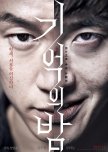
This review may contain spoilers
A Masteful Psychological Thriller In the Hitchcock Tradition!
This is a fantastic psychological thriller reminiscent of some of the best films of Alfred Hitchcock, the master of suspense. In fact, I’m sure he would have been delighted by a plot that has so many twists and unexpected layers that I seriously doubt that most viewers will be able to figure everything out until the final reveal. When a writer can keep the viewers on their toes, you know you’ve done your job well. This film is simply a work of art.The film opens in a seemingly generic plot of a family of four moving into a new house. Jin Seok has a strange sensation of having been there before, but he quickly dismisses it as a mere afterthought. However, he’s puzzled by a single room on the second floor that he’s told is forbidden to enter under any circumstances. From here, strange workings begin to occur. Noises in the middle of the night. Sounds that seem to come from the forbidden room above make Jin Seok wonder what is really going on. Things culminate one evening when he and his brother, Yoo Seok step out for the night when Yoo Seok sees that Jin Seok is unsettled. As Yoo Seok walks back to the house, Jin Seok witnesses several men abducting his brother by tossing him into a van and driving off. Yoo Seok returns 19 days later, but Jin Seok immediately notices that something isn’t right.
The film truly takes off from here because nothing is what it seems to be, and the viewer begins to struggle with Jin Seok and the reality of his situation. Is he hallucinating or dreaming about what’s been going on? Who is involved and why? Trust me. This movie has as many layers as an onion. Just when they’ve pulled back one layer, and you think you’ve got it figured out, a whole new layer is presented, and you’re left with yet another plot twist to unravel.
The writing, directing, and acting performances are all top-notch. Frankly, this may be the best thriller I’ve seen since “The Game,” which is another thriller that literally has the viewer guessing right up until the very end. That is a hallmark of masterful storytelling at its finest!
Was this review helpful to you?
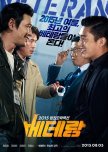
This review may contain spoilers
A Very Good Comedy/Action Film!
“Veteran” is just a plain, fun romp of an action/comedy film about a Metro detective who is hellbent on taking down the drug addict man who is the son of a wealthy corporate tycoon. The theme is a fairly common one of a wealthy man who believes that he’s untouchable and above the law. Plus, I needed something to get the bad taste of “King the Land” out of my mouth, and this movie more than fit the bill for me in that regard.Detective Seo Do Cheol leads a band of misfit detectives on various sting operations. The film opens up with him taking down an auto theft ring, and the apprehension of the Russian and Korean criminals down on the docks is beyond hilarious! Watching Detective Bong howl like a Native American battle cry, and fly out of nowhere to take down one of the operatives, is one of the funniest moments of the scene as she ends up missing the guy entirely and knocking herself out.
Do Cheol finds out that a friend (Bae) who helped him with the sting operation is trying to get his back pay of wages that the corporation is refusing to pay him, and the sadistic, drug addict, Jo Tae Oh takes great delight in having Bae beaten in front of his young son and then covering up an attempted murder with a suicide ploy. Of course, Do Cheol doesn’t believe a word of it as he’s already experienced Jo Tae Oh’s sadistic side first-hand at a party where he delightfully abuses two women just for the sheer pleasure of it.
As we’ve seen countless times before in K-dramas and movies, the rogue detective finds himself up against the system, where he’s forced to deal with high-priced lawyers, corrupt police officers who are being paid, and even high political officials who all want Do Cheol to leave the case alone. Even his wife is approached by Jo Tae Oh’s lawyer and assistant with a purse filled with money as a payoff. However, Do Cheol refuses to back down and vows to do whatever it takes to uncover the truth and take Jo Tae Oh down.
Do Cheol is a skilled fighter, and an above-average detective, and Hwang Jung Min plays him perfectly. He’s a likable guy who seems to take abuse from everyone, from his superiors, his co-workers, and even his wife, who snaps at him as soon as he gets home from a long day.
Yoo Ah In gives us an equally riveting performance as the drug-crazed Jo Tae Oh, a man who delights in the pain of others. He wears a smile like the Joker and before you know it, he goes on rampages of rage and violence. We are given hints as to why he might be like this as his father, while not on drugs, is certainly ruthless and prone to violence himself. Jo Tae Oh believes he has to prove himself in order to be his father’s successor, but his cravings for violence end up being his undoing.
The only part of the movie that had me scratching my head was the end. During their showdown, Do Cheol allows himself to be beaten in order to secure an “assault on a police officer” charge, or even just a “resisting arrest” as their fight is in front of cameras and many spectators all recording the incident on their phones. While it made the fight more interesting, I didn’t understand why he would have to take such a beating. Perhaps the charge is different in Korea, which is why I sort of dismissed it. In the US, after Jo Tae Oh hits him with the first punch—which takes place after Do Cheol is already read him his rights—that would have been more than sufficient for the charge to stick.
Koreans are masters of combing and using different thematic and genre elements in their shows and movies. This movie has plenty of action, laugh-out-loud moments, and scenes that will have you cringing, and the film also gives viewers something to think about. Koreans love using entertainment as a means to try and invoke change. In this case, it’s about not allowing the wealthy to prey upon the poor or the helpless nor allowing the wealthy to simply buy their way out of prosecution. In short, nobody is above the law and everyone should be held accountable, no matter who they are or where they come from.
All in all, this movie was a lot of fun, and I’m already looking forward to Veteran 2!
Was this review helpful to you?

This review may contain spoilers
Sakura The Fool WIth a Horrible Last Episode!
Unfortunately, I have found that Japanese dramas are much more hit-and-miss than K-dramas. You know you’re taking a chance. This series is actually pretty decent until the absolutely horrendous final episode which makes as much sense as a five-legged mule. I’m not sure if the writer was drunk that day or simply lost all control over the story and the characters.The series is about a collection of wives who are involved in affairs, although the focus of the show is mostly on Sakura, who finds herself in an abusive relationship with her husband who beats her and cheats on her. He’s basically an animal who believes that a wife is someone to control and must do whatever he tells her. In short, he believes that a wife is property.
Of course, we have a plethora of reasons for these women. An abusive husband, a husband who continuously ignores his wife, a husband who puts everyone else ahead of her, etc. You get the picture.
The irony is that most people in the world are able to realize when a relationship begins, but very few are able to recognize when a relationship ends. And in Sakura’s case, it’s only a question of how much more abuse will she put up with until the obvious is staring her in the face. The abused is just as responsible for the situation as the abuser. Remove either one, and abuse no longer exists.
Sakura finally flees her husband and runs into Haruto, a local man who runs a small goldfish shop. There is an instant connection between the two, and we later find that there is an event from the past that also unites them. Haruto is a kind, gentle man who doesn’t just sell goldfish. He loves and cares for them. Gandhi once stated that how a person treats animals is often an indicator of how they treat people.
After Sakura finally divorces her husband, she goes back to him to try and save their joint hair salon business—which made no sense. Why not work to open your own? You get bit by a shark once, then you’re the fool to go back, hoping not to get bit again. This had me scratching my head. But this wasn’t nearly as bad as Sakura leaving Haruto to pursue her career as the manager of a hair salon. Why leave him at all? Why not pursue this endeavor while staying with him? After all, he wasn’t an obstacle. It made no sense at all. In the end, she basically used him, and became an abuser herself. When she left, I thought their final scenes were silly and completely unsympathetic, despite them standing there foolishly with tears running down their faces.
Equally sad was Sakura’s husband tearfully telling his wife during a mediation session—a precursor toward divorce—that he always loved her but felt insecure. This was the biggest pile of cow dung I’d ever heard in my life! Her husband has no clue what love is, and he never loved his wife. Love is never about controlling someone else, and it certainly isn’t about physical abuse or infidelity. It was like listening to a gutless child whining. All victims are cowards because they never take responsibility for themselves. It’s always someone else’s fault. And yet, Sakura can’t see the problem because she’s much like a naïve and immature child herself.
Overall, this was a decent series. The storyline involving Hisako and the trauma behind her frequent headaches. That would have made a far more interesting series than centering the story around Sakura. If the end had been done better than it was, this series might have a least been good. It wasn’t.
Was this review helpful to you?

This review may contain spoilers
Follow Your Heart And Fulfill Your Dreams!
Following your heart may sound like a very simple thing. And yet, why do so many people end up letting others tell them what to do and what their dreams should be? Why do so many people end up choosing the “safer” path which only leads to unhappiness and unfulfillment because that path has nothing to do with their dreams?Kobe Bryant once said, “If you’re not following your passion and doing what you want to do, then why are you doing it? I love waking up excited because I’m doing what I love.” He’s got a valid point, and it’s a question that most people should be asking themselves.
This is a sweet series about two high school students who fall in love. However, the series traces their lives from the past as well as the present to see how their choices ultimately end up affecting both of their lives. It also allows us to see how making choices that are not in line with their passions and dreams leaves them sidetracked and living a life filled with regrets
Yae Noguchi is a young woman who is bright and is always looking to push the boundaries of her life. She has big dreams of outer space and traveling. She also finds that the love of her life, Namiki Harumichi is a big part of her life. However, after being struck by a car, Yae loses all memories of the past few years, which includes Harumichi. Yae also has a drunk and controlling mother who lives vicariously through her daughter. Feeling that Harumichi is no longer good enough, she tells Harumichi to stay away from Yae. Yae ends up marrying a doctor from a wealthy family. It’s ironic that Yae’s in-laws end up treating her mother the same way her mother treated Harumichi. Yae’s life is soon centered around her son, Tsuzuru, and she drives a taxi cab in Sapporo as way of making money and providing her son with as much as she can. What she may not realize is that Yae’s greatest gifts to her son are support and belief that he can do and be anything he chooses. Something her own mother failed to give her. Most people have no idea how invaluable it is for a parent to simply be there for their children and to let them know that you believe in them. A good parent isn’t about telling your children what to do and what to be. It’s instilling confidence in them to follow their own dreams and passions.
Namiki Harumichi life is centered around Yae from the moment he sees her. Everything he does has her at its center. While he has dreams of becoming a pilot, we see that even those dreams are second to Yae. It is always dangerous to put a person at the center of one’s world. That path is wrought with disappointment. And Harumichi finds his world turned upside down when he discovers that Yae doesn’t remember him, and that Yae’s mother has intercepted every letter that he’s written to her. He’s crushed. Years later, Harumichi is part of a security team at a government building. His dreams of being a pilot seem buried in the past.
Yae and Harumichi end up meeting because Harumichi has been unknowingly helping Yae’s son, Tsuzuru enter the building to watch the girl of his dreams dance. Of course, Harumichi immediately recognizes Yae, but Yae has no idea who Harumichi is.
The series does a masterful job of charting the course of both characters, leaving the viewer to wonder—that after over 20 years, can these two star-crossed lovers find a way to be together? We find ourselves rooting for both of them. Of course, life always throws us curveballs, usually to test our resolve. Will we quit and give up? Or will we push forward no matter how many times we’re knocked down? The series is a testament to the latter. Despite being engaged, Harumichi is spending time with Yae, and it’s clear that—despite not remembering who he is—is infatuated with him.
Harumichi is a character who does the most growing up throughout the course of the series. In the end, he realizes that he can’t sacrifice his own dreams—being a pilot—simply for the love of a woman; a woman who doesn’t even remember him. He wants her back whole, and he’s willing to put her aside. In other words, he doesn’t choose the path of force and manipulation. To do so would be to destroy the memory and love of Yae, both past and present.
While the ending may be a bit predictable, the way it happens isn’t as a few clues—a song and remembering a time capsule—help Yae finally get back the memories she’d lost so long ago. We can see her tearfully realize that the man she’s in love with is the same boy she fell in love with in school long ago.
This is a beautiful story that demonstrates that love is timeless and cannot be held under any conditions or constraints. It also dares the viewer to take a hard look at their own lives. Are you living your passion and dreams? Are you living the life you want to live? If someone is dictating how you should live, don’t blame them for unfulfilled dreams. You gave them that power, and therefore, you are still at fault. Life is about risk. Life is about daring and pushing yourself to do what you may believe to be the unattainable and the unthinkable. Do not believe that such dreams can only be attained by the few. They can be attained by anyone who has the will and the drive to make them happen. Both Yae and Harumichi prove this in this timeless classic!
Was this review helpful to you?
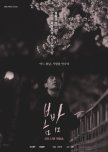
This review may contain spoilers
Don't Fall Into the Trap of Allowing ANYONE To Tell You How To Live Your Life!
If there is one thing that the viewer will hopefully take away from this series, it’s this: never, NEVER let anyone tell you how to live your life. It doesn’t matter who it is—religious people, family, society, or anyone else. As soon as you allow others to dictate how you live your life, you’ve given away your power. And when things don’t work out, you have also lost any right to get angry or resent them for it because YOU allowed it to happen. And the only person who will be dealing with the fallout is you. Those who counseled you won’t be taking the hits. YOU will! Steer your own ship. Don’t let anyone else try to steer it for you.“One Spring Night” is hardly the most romantic series I’ve ever seen, and it’s not necessarily an easy series to get through. This isn’t necessarily a criticism as the series is very well-steeped in realism about people navigating the minefield of relationships and the problems that arise because of them.
The “Before Sunrise” film series is the most realistic series I’ve ever seen regarding relationships…how they start, where they go, and how two people who were once in love, struggle to find that spark that they once shared when they first met.
Ji Ho meets Jung in one random morning when she comes into his pharmacy to get hangover medicine. It’s easy to see that he’s immediately captivated by her, despite her brusque mannerisms and snippy attitude. However, he quickly finds out that she’s already in a relationship with Ki Seok, a guy he actually plays basketball with on weekends.
It becomes very obvious from the get-go that Jung In doesn’t love Ki Seok, and the viewer is even left to wonder if she ever has. It’s ironic how many people enter relationships out of convenience or simply to use the other person because of money or social status. It doesn’t take long for Jung In to realize that she’s quickly developing feelings for Ji Ho, and soon she breaks up with Ki Seok and begins a relationship with Ji Ho.
Of course, rarely are things so simple. And yet this dynamic is an interesting one because I haven’t really seen it in Korean dramas. Ji Ho has a son, but he’s not married. What I admire about Ji Ho is that he doesn’t try to hide this fact, and he’s very upfront with Jung In about it, letting her decide if it’s a problem or not. We also find that a single father is considered to be quite unappealing, especially if you’re a single woman who’s never been married. Pretty soon, everyone is voicing their opinions and concerns, from his family to hers and even their friends.
Ji Ho is easily the most mature character of the series, with Jung In’s older sister Seo In being right up there with him. Ji Ho is honest and seemingly unafraid. He views his son as a strength and not a weakness, and he makes it apparent right from the start that he won’t allow anyone to hurt his son, even Jung In. He’s also very understanding and considerate, and perhaps his greatest strength is his ability to empathize. He knows the pressures that Jung In will experience, and he gives her the space to figure out whether or not she wants to be in a relationship with him.
Jung In—despite the actress being six years older than her male counterpart—has a number of issues. Don’t get me wrong as all of the characters are a bit flawed, but Ji Ho’s past experience has only made him stronger and more mature. Jung In’s greatest strength is her fierce independence. She has absolutely no problem standing up to anyone, including members of her own family. I LOVE this about her! She proves—at least in that regard—to be the type of companion that I think most men would love—someone who will walk through the fire with you and not look back. However, Jung In is also moody, temperamental, a bit conceited, judgmental, and tends to lack understanding and compassion when push comes to shove. Perhaps her greatest weakness is her inability to empathize. She doesn't smile very much, and it's quite evident that she's not a very happy person. She also has a tendency to be bossy. Ladies, remember this: no real man wants another mother for a wife! One mother is more than enough! That pledge was ridiculous, and if you’re in a relationship to try and change the other person, you’ve already entered into it for the wrong reasons.
In Episode 15, we find Jung In is angry by a “slip of the tongue” from a drunk Ji Ho when he asks her not to leave him or his son. She takes it as a sign that he doesn’t trust her—which is actually understandable to a point. Rather than talking it out and trying to understand why he has those feelings at all, she storms out and then tells him that they need to take a brief break. And then, immaturely, she gets angry when he doesn’t contact her. However, she never once stops to think about his past situation with the woman who left Ji Ho and his son and why that might be a source of fear and insecurity. If nothing else, this should have been a sign to both Ji Ho and Jung In that they needed more time to get to know each other. Relationships aren’t just about sharing happy, quality times. They are also about finding that person with whom you can confide and share your fears and insecurities. Every relationship is flawed and dysfunctional because everyone has those fears and insecurities. It’s how you navigate and BE there for each other during such moments that counts!
I’m not sure I’ve seen two more despicable characters in 45 years of watching shows than Ki Seok and Jung In’s “father.” I use the term “father” very loosely because such a man has no right to call himself one. Any father who uses his children for personal gain is no father. Any father who’s afraid of what people think rather than standing firm with his children is no father. Seo In has been physically and sexually abused by her husband (another deplorable man who won’t allow her to divorce him), and yet her father rants about how wrong divorce is and why she should try and work things out with her husband. That scenario literally made me sick to my stomach! And then we have Jung In’s father trying to marry her off to Ki Seok—without her consent—so that he can get a promotion at work. Utterly pathetic!
Ki Seok is almost as bad. This is a little boy masquerading as a “man.” After Jung In breaks up with him, he still contacts her, demands to see her, and unbelievably still insists that they are going to get married! Now, part of the problem is Jung In herself. She fails to see the obvious: to tell Ki Seok to his face that it’s over and then to break off all communication with him. Teasing him and stringing him along was cruel no matter how despicable he was. Ki Seok is an arrogant boy who views everyone as being beneath him, especially Ji Ho. Right up until the last episode, Ki Seok still believes that Jung In will marry him. Nobody—not even his own father—points out the obvious: that Jung In is in love with Ji Ho, and after all that he’s done, how in the world would he ever believe that she’d marry him?! Supreme delusion and arrogance.
Women are not property to be bargained off and used any way you see fit. This is something that many of the cowardly men in this world still fail to realize, and this series makes a very fine and bold point regarding this.
The series—for the most part—is well done. It’s not afraid to show the flaws, fears, insecurities, and concerns that many people have and why it’s important to find someone who’s strong enough to go through it all with you. The only thing better than being a person who won’t allow others to tell you how to live is finding a companion who lives their life the same way. Such a couple is an “iron couple” who can get through anything. If that doesn’t sound appealing to you, then I’m not sure what does. And, frankly, that was my favorite part of the series—watching Ji Ho and Jung In standing firm together and holding off all of their attackers—and as they did so, they began to help others realize just how powerful and true they are together!
If I have one glaring complaint about the series, it’s the music. My God! I’ve never heard two songs repeated (often 5-6 times per episode!) so much. The songs aren’t bad, they just didn’t quite fit the series. And it was overkill to play them so much. I love the songs from K-dramas. I have a huge list on my iPod from so many shows. Needless to say, I won’t be adding any from this series as too often, they got stuck in my head. It got to the point where I was muting the show when the song came on. I had the subtitles to read the dialogue. I kept going, “Oh, God! Not again!”
This is a series that actually gets better the deeper into the show you get. I know a lot of people stopped after four or five episodes. Believe me, it actually did get quite better. “My Business Proposal” is still my all-time favorite series depicting strong women. Unlike Jung In, the two women in that series were also soft, loving, and romantic. I also love the female lead in “Hometown Cha Cha Cha.” By the time this series ended, I had hopes for Jung In that perhaps she might soften up a bit and not make everything about her. I’m sure that with Ji Ho’s help, she would ultimately allow that to happen.
Was this review helpful to you?

This review may contain spoilers
Korea's "Romeo and Juliet!"
As I write this review, I am listening to “Only My Heart Knows” by Sohyang—the greatest female singer on the planet--which is the most eloquent way and expression that I can think of to captivate what I’m feeling after finishing this extraordinary series. Sohyang does for “Hymn of Death” what Celine Dion did for “Titanic.”Romeo and Juliet is considered one of the best romances ever written. Of course, it was also a work of fiction. Jack and Rose were also considered a great romance, but they were fictional characters in a historical event. Yun Shim-Deok and Kim Woo Jin is about real people back in the mid-1920s whose lives abruptly ended when they committed suicide together by jumping off a passenger ship. Now, to some, this may seem to be a tragic romance. As with so many things in this world, it really does depend upon your perspective.
What happens when oppression and suffering become so great that they make a person feel trapped? Let me point out that those who commit suicide or consider it an option are feeling trapped. They feel that there is no other way out of whatever situation they are in. Whether or not you agree with the act doesn’t matter. It’s what they are feeling. How do I know? Because it was something I attempted once myself.
Yun Shim-Deok was a woman well ahead of her time. She was outspoken and wasn’t afraid of being bold and going against a system she didn’t agree with. For the 1920s, this was more of a rarity than most people realize. Coming from a poor family, she was essentially the family’s sole means of making money. She was also given the responsibility—albeit unfairly—to also make enough money to pay for the education of her siblings. But, at what price?
Kim Woo Jin is a writer from one of the richest families in Korea. His father expects him to forsake the foolishness of being a writer and run the family business while being married to a woman who is more about duty and doing what his father wants than being a supportive, loving wife.
Both show incredible talent in their respective fields. Kim Woo Jin is a gifted writer of poems, plays, and criticism—not to mention his love letters to Yun Shim-Deok. Yun Shim Deok is able to captivate audiences with her beautiful voice. And yet neither is allowed to pursue their passion. Kim Woo Jin’s father won’t allow his son to write, and the Japanese attempt to use Yun Shim Deok for their own, sick and demented reasons, caring nothing for her singing talent.
It's been said by many that there are few things sadder than wasted talent. What does it do to a person to not pursue the life they want? What does it do to twist someone’s talent to the point where it’s no longer what it is supposed to be?
Whether you are simply using your son or daughter to carry on family obligations, such as running a family business and having them marry whom YOU want them to, or using your son or daughter by holding them hostage under the “family obligation,” for financial reasons, the result is the same: you are using your children. You are treating them as property, and children are not property. And if you are unable to support your children in helping them pursue their own passions, then you are not fit to be a parent. No, it’s worse than that. You have no right to even call yourself a parent, any more than the parent who is indifferent and neglects his/her children.
This series is powerful and eloquent in depicting two souls who loved each other so much that they refused to leave each other. Not even in death, as they left this life together. It’s beautifully done with incredible performances by Lee Jong Suk and Shin Hye Sun. They have incredible chemistry, which is obviously necessary in order to make this series work. My only very small complaint is that I wish a singer had helped Shin Hye Sun train as a singer. Even if it wasn’t actually going to be her singing, she doesn’t open and move her mouth as a singer would.
The series is short at only six episodes (three via Netlfix as they combined each episode into pairs), but it’s not a series that is easily forgotten. It stays with you from the opening moment of the first episode when you see the two pairs of shoes on the deck of the ship to the moment when Kim Woo Jin and Yun Shim Deok are dancing and then slowly begin to walk to the deck’s edge. And I can’t help but think that the real Kim Woo Jin and Yun Shim Deok are smiling somewhere together.
Most people look upon death as horrible and tragic. That isn’t always the case. And I can’t feel that way about Kim Woo Jin and Yun Shim Deok. If nothing else, I hope this series makes people stop and think, especially parents and how they treat their children. No one has the right to take away another person’s passion and happiness. Those who do so—those who attempt to live vicariously through their children—are the vilest and most selfish people I can think of. Therefore, love and support your children in whatever endeavors they choose. Just remember, that their lives are not yours. Their lives are theirs! And for better or worse, they have the same right as you do to live it as they see fit. Every human on earth was given the same, greatest gift: the freedom of choice. The very nature of “Hymn of Death” cries for freedom! Freedom to live and to love.
Was this review helpful to you?
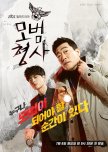
This review may contain spoilers
Two Exceptionally Principled Cops and One Exceptionally Weak and Compromised Reporter!
What is the price of integrity? What is the price of doing the right thing as opposed to the easy thing? And what is the price of compromising one’s integrity and doing the right thing? There have been a number of K-Dramas dealing with corruption. Some within the police force. Some within the prosecution. Some within the political annals, and several dealing with all three. “Stranger” is still the all-time best when it comes to dealing with corruption within the hierarchies of Korean judicial systems. “The Good Detective” is—for the most part—very solid with a few small issues here and there.A senior detective who’s been stuck in the same position for many years finds himself not following proper protocols when dealing with a murder suspect. That suspect is up for execution and Sergeant Kang Do Chang comes across some new evidence from some suspicious sources that prove that his suspect is likely innocent and was set up. Kang Do Chang has many years of experience under his belt, and he soon realizes the toll of doing the wrong thing can do to a person. We get the sense that this is his first major blunder, but it would soon cost him, and now he endeavors to do whatever it takes to set things right and also to vow never to go down that road again.
Lieutenant Oh Ji Hyuk is the newest member of Violent Crimes Team Two, and even though he’s technically Kang Do Chang’s superior, he takes the subordinate role for some reason. While Kang Do Chang is savvy, Oh Ji Hyuk is the smarter of the two. His skills at deductive reasoning help him see things that even his senior partner is unable to grasp. He’s also got a tie to Kang Do Chang’s case, as the principal suspect is actually his sadistic and wealthy cousin, Oh Jong Tae (played by Oh Jung Se). It’s very hard for me to see actor Oh Jung Se as anyone other than his stellar performance of Moon Sang Tae from “It’s Okay to Not Be Okay” which is one of the best acting performances I’ve ever seen.
The two detectives are principled and endeavor not to break the rules when it comes to bringing the truth to light. Little do they realize how stacked the corruption is against them, from prosecutors to superior police officers. to Civil Petition Division officers (Internal Affairs) and to the Ministry of Justice himself. Not to mention the press.
Speaking of the press, we have our third major character of the series, and easily my least favorite. Reporter Jin Seo Kyung is a selfish, immature, and weak person, who reaches for a bottle of alcohol more readily than she does her “mighty pen.” A number of times, we see her stumble and refuse to do what’s right. She compromises her own integrity because she’s afraid and doesn’t have the guts. She thinks little of anyone but herself and how a decision will impact her. In many ways, she’s the antithesis of our two detectives. Once, she withholds key evidence that might help save innocent Lee Dae Chul. And then she refuses to share the murder confession of her boss to the police, which unwittingly gets him killed. Oh, she finally gets around to doing it, but not before it’s too late. She’s a miserable woman who can’t see the forest for the trees. She easily discards the actions of her boss. She comes across as naïve, but she isn’t. She knows what he’s been up to and what he’s doing and the abuse of power he’s wielded as a prominent editor of a big-time newspaper. And yet, she does nothing. It’s been said that too often the biggest problem in the fight against injustice is for good people to do nothing.
It’s always been sickening to see how much disregard there is for human life, especially when they are pawns and victims being ground under wheels of corruption. Kang Do Chang admits his mistake but does his best to rectify the situation. Some of the most touching scenes in the series are between him and Lee Dae Chul’s daughter, Lee Eun Hye. It takes a lot of courage to admit that you’re partly responsible for what’s happened to a young girl’s father. It takes an even bigger person in Lee Eun Hye to forgive him and even thank him for trying to set things right.
As with many Korean dramas, the series is filled with suspense, touching moments, and outright humor. I’m not sure how a police officer could endure so much when they are trying to catch suspects and are—at the same time—fighting against the system they are a part of. How would an officer keep his sanity under such conditions?
I was glad to see several supporting characters realize their mistake and also try to find a way to redeem themselves, rather than simply being swept aside by the system. Yoon Sang Mi (Civil Petition Division) compromises her own integrity by lying in court in order to get a promotion. Kang Do Chang holds her in contempt and makes her face her own greed when he confronts her. Then we have Chief Moon who is also a part of the cover-up of the true crime. Fortunately, of all the characters to fall into the corruption pool, he does the most to try and set things right.
I’m not sure why Oh Ji Hyuk is held accountable for using his gun in the last episode. If there truly is a “rule” that prohibits an officer from using his weapon to save the life of another officer, then something is terribly wrong. I thought that wasn’t just silly, but insulting and offensive. Oh Ji Hyuk literally saves Kang Do Chang’s life. That was a stretch for me.
If it hadn’t been for such a deplorable character in Jin Seo Kyung, this series would have been nearly perfect for me. Her character was cringe-worthy. I’m not sure why the writer chose to make the female characters so unlikeable. Kang Do Chang’s sister drinks like a fish and snaps at him at every turn. I’d have kicked her out of the house. Her voice is even like nails on a chalkboard. I tend to prefer stronger female characters. They don’t have to be impeccable or flawless, but at least make them likable.
Acting performances—for the most part—are all rock solid. Again, I still feel that the two best performances were from Son Hyun Joo (Kang Do Chang) and Jang Seung Jo (Oh Ji Hyuk). These two have that good “buddy cop” vibe that you want to see in these types of stories.
Overall, this is a good series. However, I think I’ll wait a while before delving into Season 2, which I’ve already heard, isn’t nearly as good.
Was this review helpful to you?
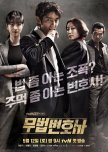
This review may contain spoilers
Recuse the Judge!
“Hypocrisy is the audacity to preach integrity from a den of corruption.” It’s sad that we live in a world where this is far truer than we’d like it to be. Those in power who abuse that power to exploit those around them. Promises of fame, money or even power on some level are often all that is needed to put someone on the path. What is scary about people like Hitler, Stalin, Trump, and many others throughout history, is that they convince themselves that they are doing it for the people and the greater good. When, in fact, it is always for themselves.The Lawless Lawyer sees Bong Sang PIl return to the city of Ki-Song after eighteen years to seek revenge against the kingpin of the local gang and the judge behind him for the murder of his mother, which took place right in front of him when he was ten years old. Now a lawyer, he’s determined to exact his revenge through the law. Bong Sang Pil doesn’t need to find out who is responsible because he was there to see everyone who was involved. But, he also knows that kingpin, Ahn Oh Joo and Judge Cha Moon Sook are too powerful to be taken down any other way. Oh, he could resort to petty violence, but he knows that this would only destroy him in the process. Bong Sang Pil, the nephew of another kingpin, has connections within the underworld, but he’s told by his uncle to stick to the law and not follow his uncle’s path.
Ha Jae Yi is another brilliant attorney whose ability in court is matched by her temper. After punching out a judge for his demeaning and derogatory statements about women, she’s suspended and return to Ki-Song to try and figure out what to do next. Ironically, Ha Jae Yi’s own mother disappeared the same night that Bong Sang Pil’s mother was killed. And we find out that Jae Yi’s mother was instrumental in saving Bong Sang Pil from certain death on that fateful night. We also learn that Jae Yi’s mother has powerful evidence of Ahn Oh Joo and Judge Cha Moon Sook, but she is forced to flee Korea in order to keep her husband and daughter safe.
I’ve seen several K-Dramas where the central theme is political and judicial corruption. “Stranger” was the best I’ve seen. “Chief of Staff” is another. This series is compelling because it deals with corruption within a town and how a corrupt judge rules with an iron fist, using people like tissue, and doing everything for the sake of money and fame. Actress Lee Hye Young gives a superb performance as a woman who simply cannot see that anything she does is wrong or hurtful. To her, people are there to be exploited, and we can’t help wondering how much of an influence her own father was; a man who’s hinted at being a corrupt judge himself.
For the most part, the series moves along at a great pace. What is truly impressive is how the writers are able to weave this tapestry, which is like watching two grandmaster chess players in Bong Sang Pil and Cha Moon Sook, trying to outmaneuver and outsmart each other. While Bong Sang Pil doesn’t have the power that the judge has, we quickly come to see just how smart he really is. And that is what makes his character so compelling. But, he quickly realizes that he can’t underestimate Cha Moon Sook or what she is capable of.
If the series has one major flaw, it’s this: Ha Jae Yi’s mother returns to help. And while it’s been 18 years, there is no way that Ha Jae Yi wouldn’t recognize her. Ha Jae Yi’s father runs a photo studio. The family photo sits prominently in the store window, not to mention the countless photos inside the house. And speaking as someone who lost his father, you never forget a parent’s face. I spent hours, days, and even years with his picture all around me, looking at it whenever I wanted. Ha Jae Yi would be of the same mindset. I understand that the writers did this for the sake of the plot, but it doesn’t work here. They should have come up with another ploy to make it work.
A subplot in Episode 14 also doesn’t quite work in which Ahn Oh Joo tells Bong Sang Pil over the phone that he intends to do something to Ha Jae Yi, and yet Bong Sang Pil doesn’t even bother to warn her or even Chief Tae of the threat. That made no sense either. Again, and I say this often in my reviews when I catch this: do not sacrifice character for the sake of making the plot work! In other words, don’t make a character do something that goes against their nature just to make a plot point work.
All in all, this is a highly entertaining and intriguing series. It’s my second time watching Lee Joon Gi after “Flower of Evil” and I can quickly see why he’s so beloved. The man tackles complex characters and emotions with ease. It’s clear to me that he’s a natural when it comes to acting. Even facial tics and flinches make him even more compelling. It is also my second time with Seo Yea Ji after “It’s Okay to Not Be Okay.” Obviously, her performance in “It’s Okay to Not Be Okay” has far more depth and complexity to it, which she handles like a master artist, but she’s no less compelling in this role. I love how she brings fearlessness to her character. Even when facing Cha Moon Sook, she’s got nerves of steel and won’t back down for a second. I love seeing people, especially Korean women who too often are treated like wallflowers, stand fast and stand strong.
This series has humor, wit, great characters, and a thrilling story. It reminds me a bit of one of the best detective series, “Columbo.” We know how the murder was done, and we even know who did it. What we want to know is how the detective will be able to prove it. In this case, we want to see how Bong Sang Pil will be able to catch Cha Moon Sook, along with everyone else who is responsible for destroying his and Ha Jae Yi’s childhoods.
Was this review helpful to you?


 1
1













